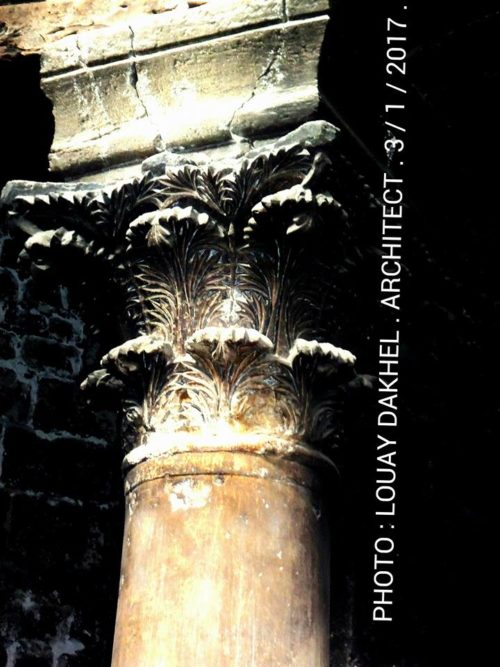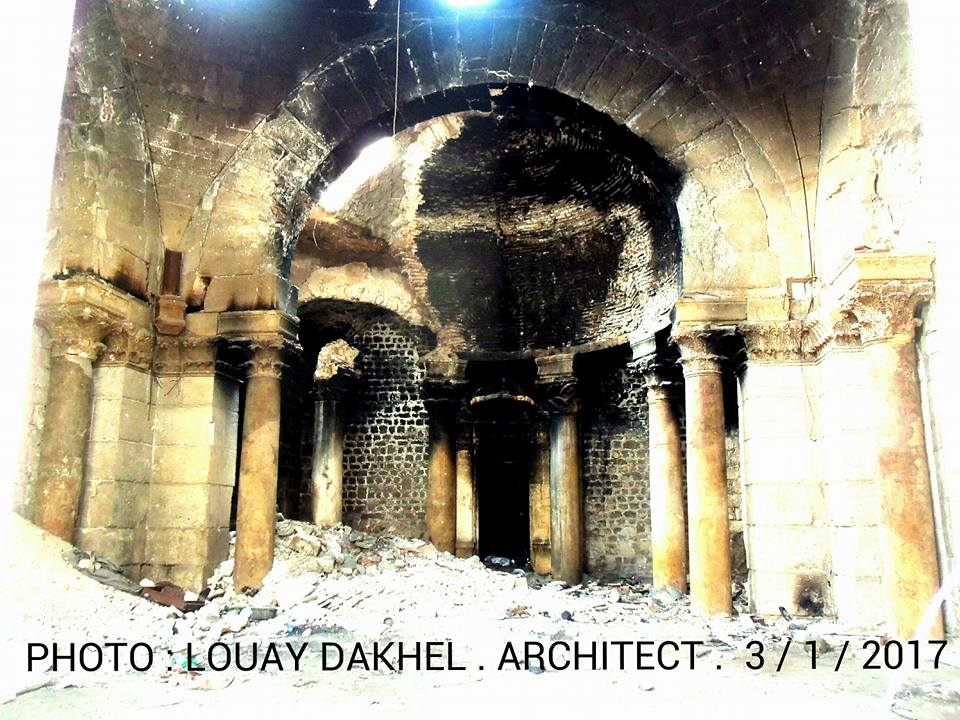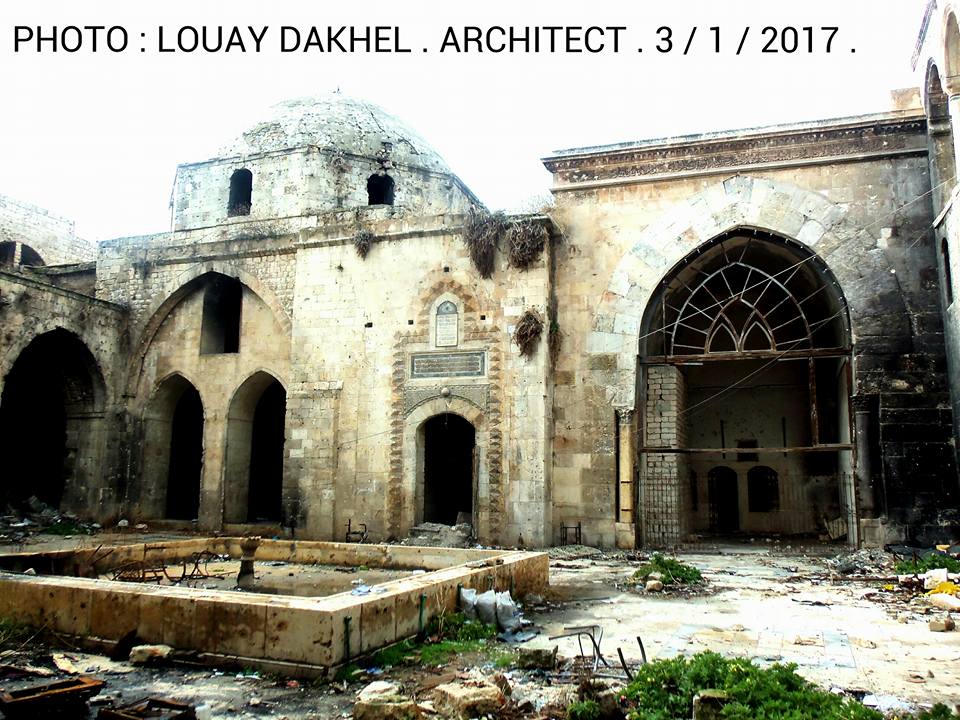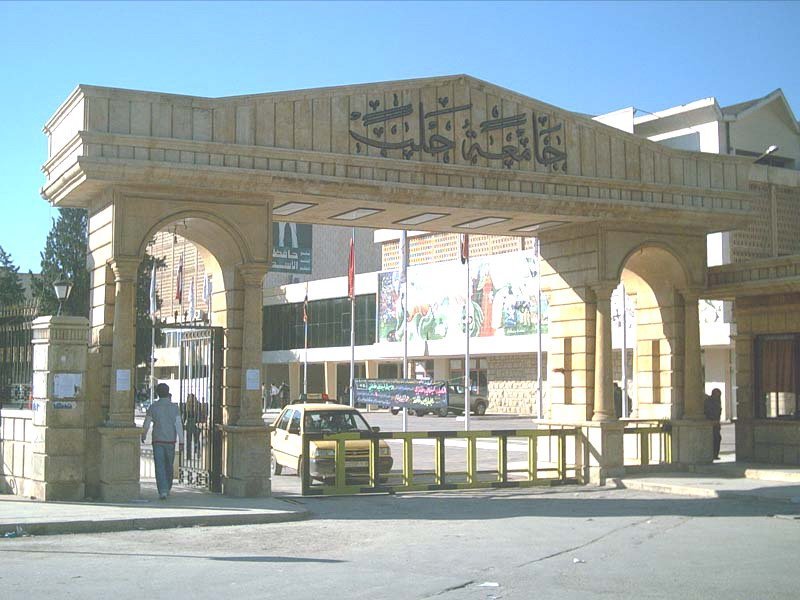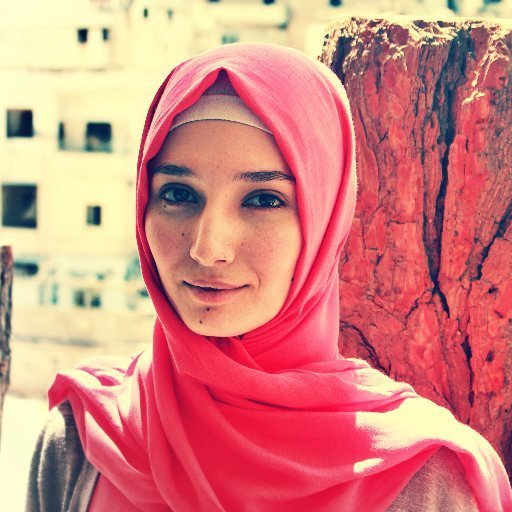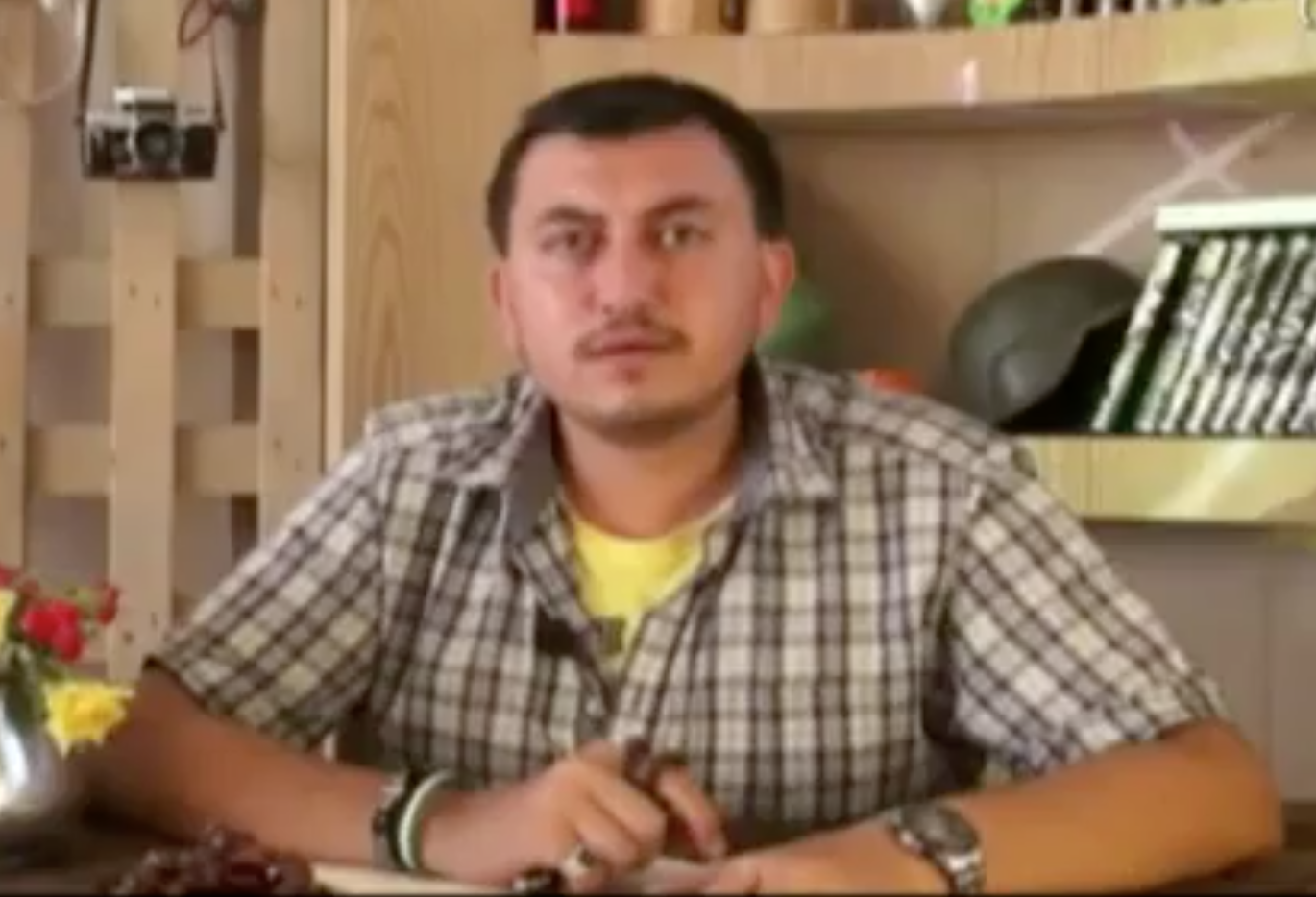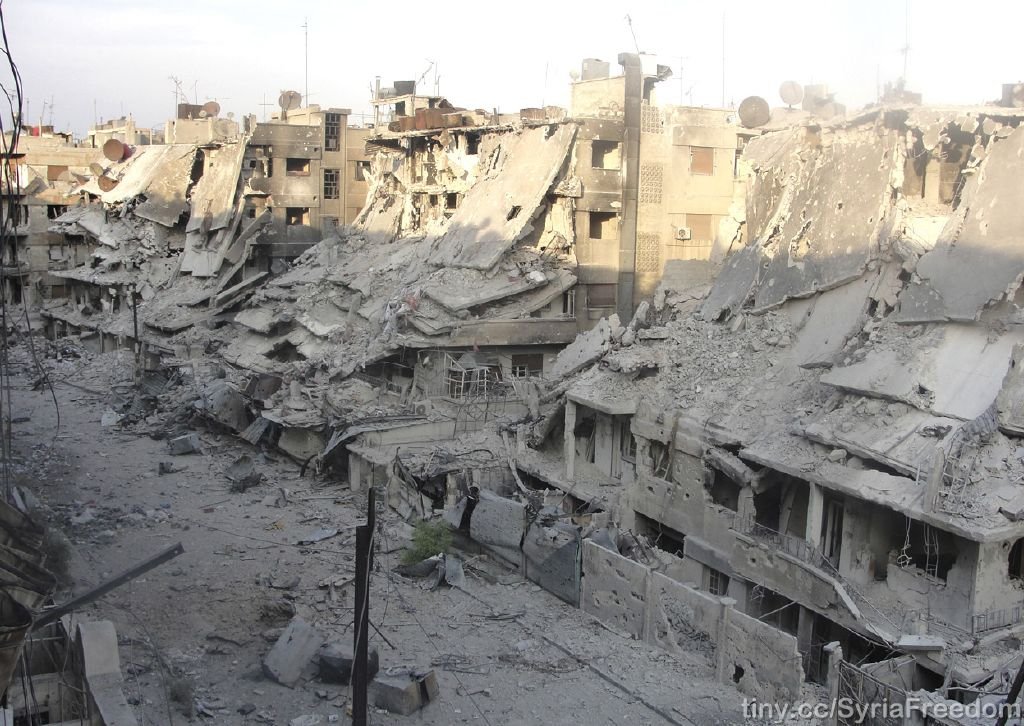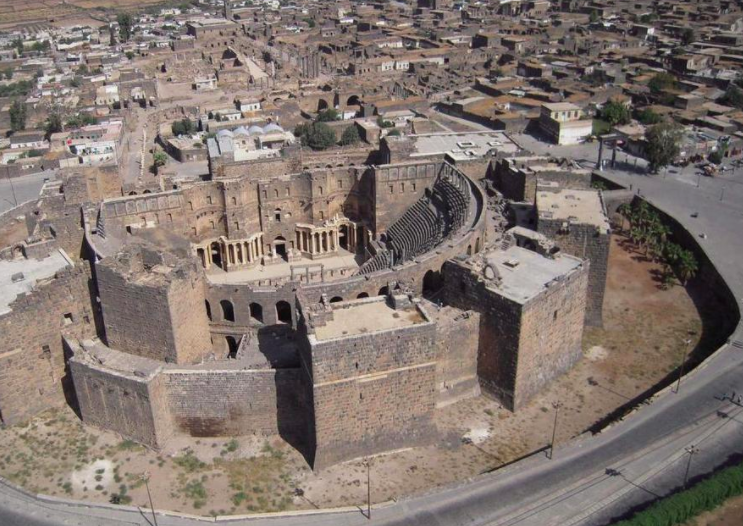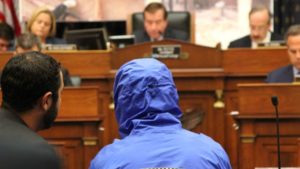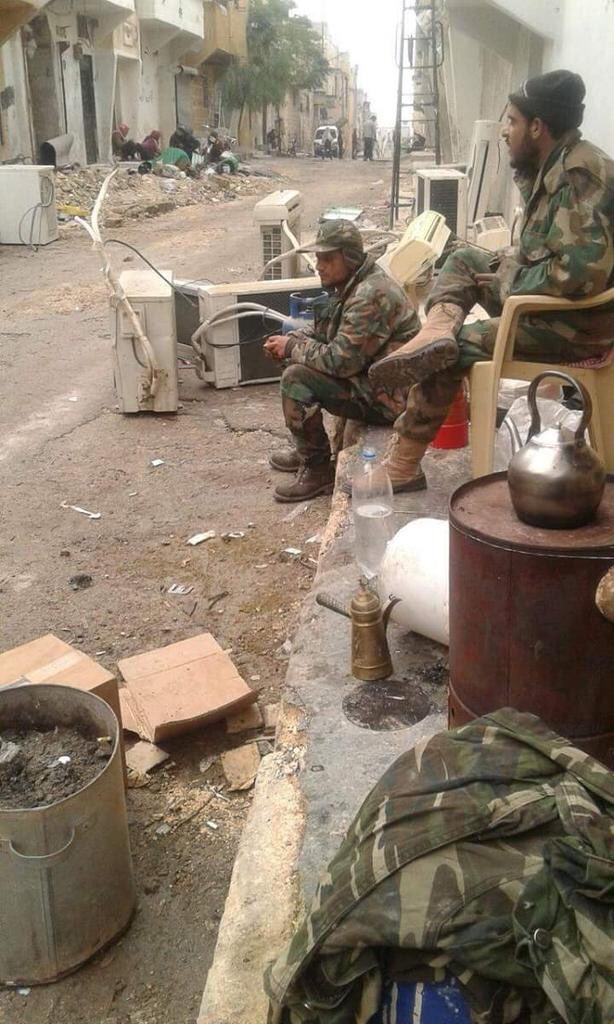Old Aleppo Revisited, a new series of biweekly posts on Mondays and Fridays, will feature the abundant authentic new imagery that is coming out on the web. Photos and descriptions are by Aleppians, including non-specialists, architects, and cultural heritage experts, who stayed in Western Aleppo and for the first time since late 2012 were able to visit these locations.
As an introduction to Old Aleppo Revisited, architect Louay Dakhel shares with us his analysis of the architectural effects on Al-Madrasa Al-Halawiyah, with much of its construction dating back to the Byzantine era, modestly featured on Facebook through photos he took on January 3, 2017.
He observes that about 95% of the structure is intact, with limited damage to a small part of one of the Byzantine columns in the prayer hall and just part of the half dome above these columns, as well as bullet marks on the external walls of the courtyard. Dakhel assesses that this minimal damage has no effect on its foundation and could easily be restored. Likewise, he notes that the Ayyubid mihrab is fully preserved behind a wall built for this purpose. He discerns the greatest effect to be on the woodwork, glass, and iron details, which have completely lost their architectural character.
 The Aleppo Project
The Aleppo Project